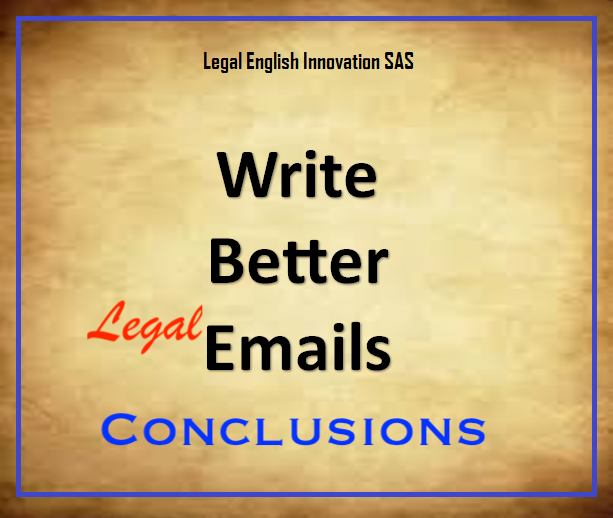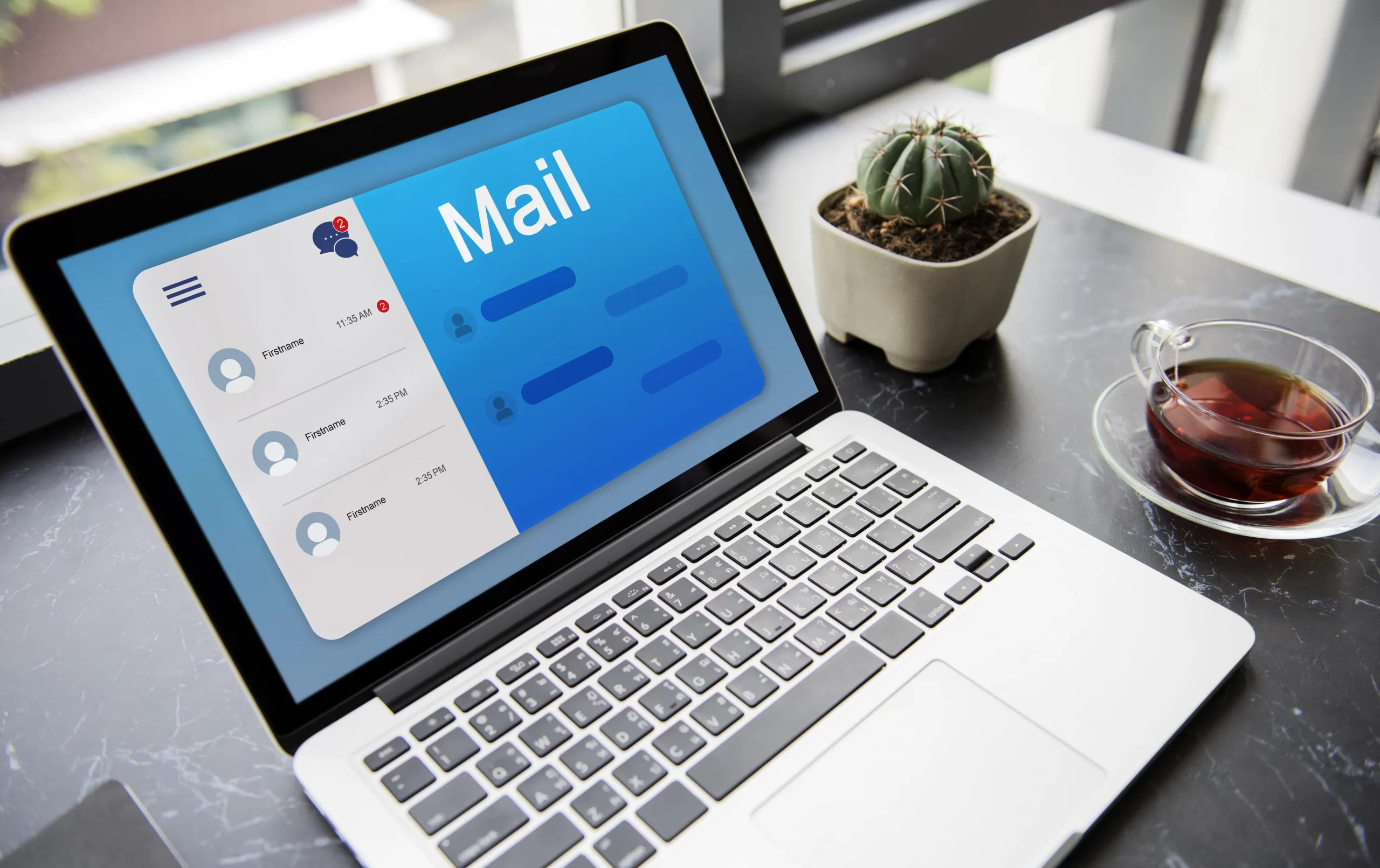Write Better (Legal) Email Standard Phrases
When you use standard lines and phrases, you sound normal. As native speakers, we all grow up seeing and hearing these expressions everyday. We like what feels familiar, and therefore we contract and hire people that make us feel that way.
I always sang standards because the songs I wrote for myself weren’t as easy to sing.
— Carly Simon
The more you practice, the better you will feel, and the easier they will be.
Don’t invent them.
Trivia & Phrasal Verbs
What do you know about e-mail?
Each week we will take a quick quiz in order to do a pre-check on your skills. It just takes 3 minutes and will help identify your weaknesses and show you where to focus.
Pop Quiz Question
Which line is correct?
I looking forward to hearing from you.
I look forward to hearing from you.
I looked forward for hearing from you.
I looks forward to hearing from you.
I look forward to hear from you.
I look forward to hearing from you.
What does the CC mean when addressing recipients?
To:
CC:
BCC:
To: Intended Recipient
CC: (courtesy copy)
BCC: (blind courtesy copy)
The Introduction
This part must be perfect.
Informal Introduction
Hi Eric,
It’s me again.
Just letting you know that this weekend we are having the…
Quick Quiz
Fill in the Blank
Informal Well Wishes
Hope all is good.
Hope you __d a great weekend.
It is me a____ .
Informal Reason for Writing
Just _o tell you that…
I am happy to say that…
J___ letting you know…
Informal Replies
Thanks __r getting back to me.
Thanks for getting _n touch.
Thanks f__ the quick response.
Informal Follow ups
Just following _____ on…
I am getting _____ to you on…
_____ wanted to touch base on…
Formal Introduction
Dear Mr. Froiland,
I hope this letter finds you well.
It is a pleasure to inform you that this coming weekend we are hosting…
Quick Quiz
Fill in the Blank
Formal Well Wishes
I ___e you have been well.
I hope this letter ____s you well.
I hope you are doing w___.
Formal Reason for Writing
I am writing in r_____s to the…
W___ reference to our…
It is a pleasure to _____m you that…
Formal Replies
Thank you f__ the update.
Thank y__ for the information.
T____ you for the prompt response.
Formal Follow ups
As p__ our conversation…
I would like to follow u_ on…
A_ we discussed on our call…
The Body
There is a lot a stake, but you have to take a risk. This is where you can express the spirit of your message, but of course not changing the register of the email. As an ESL student, this is a good opportunity to take some risks and write freely. However, keep in mind that it is important to use standard phrases, keep paragraphs to one main idea each and finally, write in plain language and cut down the legal jargon unless it is absolutely necessary.
Tips for Topic Sentence
Keep it short.
15-20 words max.
Tips for Detail Sentences
A little longer to describe detail.
20-30 words max.
Standard Lines – Thanking for the Visit or Information
Thank you for coming __ to see me on July 24th when we discussed your case.
Thank you for stopping by on the 24th to see me and drop __ the documents.
Thank you for dropping by to make payment pick __ your receipt for our legal services.
Tip # 1
The following phrasal verbs to ___ by generally have the meaning to visit a location, but quickly. The by preposition is the main indicator, and the verb is flexible.
to come by
to go by
to drop by
to run by
to swing by
Tip # 2
These two are opposites. And they are two of the most common phrasal verbs that you will see.
to drop off
to pick up
Standard Lines – Confirming Information
You told me that your client agreed to enter ____ an agreement with you for the purchase of…
You mentioned that your client did not perform their obligations as set ___ in the contract…
You said that during the contractual relationship that you set ___ …
Tip # 1
To enter into
This is a foundational term in legal English to mean that you accept the offer and agree to start legal relations with the other party.
Tip # 2
To set up
vs
To set out
This is easy, to set up is to organize, plan, configure or establish, to set out is to write, or draft.
Standard Phrases – Identifying the Legal Issue
The legal issue here is whether or not your client breached the contract…
We have determined that the issue of law in this dispute arises from…
Our team has identified that the legal issue is…
Tip # 1
legal issue – Legal issue or issue of law is a legal question which is the foundation of a case.
Tip # 2
Speaking as we or our team is perfectly acceptable in professional environments.
Standard Phrases – Citing Case Law
Recent case law suggests that your client did indeed enter into a…
Upon researching the recent precedents similar to your case, it appears your client had full intention to…
Tip # 1
Use the term case law, not jurisprudence in English.
Standard Phrases – CTA
I will contact your client to notify them of the aforementioned…
I will set out a letter outlining our offer to renegotiate the contract…
Our team will reach out to your client to inform them of the said news…
Tip # 1
Be very direct and explicit in this line.
Standard Phrases – Closing
I look forward to hearing from you.
I look forward to receiving your call.
I look forward to seeing you soon.
Grammar Tip
Almost always in English, follow a preposition (to, up, in, after, out, etc), with the -ing form of a verb.
For example:
Never give up learning.
After drafting the document…
Without knowing, your client…
Standard Phrases – Receiving Questions
Please do not hesitate to ask if you have any questions.
Please let us know if you have any questions or comments.
Some/Any Advice
What is the difference between some and any?
Well that is an interesting question. Both of them are positive, and both of them are unidentified.
The difference is that some is real, and any may or may not exist.
For example:
If you have any questions or comments… (maybe you have questions, maybe you don’t)
If you have some questions or comments… (you do have questions, but they are unidentified)
So, if you think your email or letter was very clear, you outlined everything, and left the reader knowing exactly what to do, you probably want to use any, instead of some. However if you feel there certainly are questions, but you just don’t know what they are, use some. In either case, avoid using doubts, or a doubt, as this brings a negative connotation in English.
Verb Collocations
Verb + Infinitive form
to offer
to decide
to refuse
to hesitate
to fail
to plan
to hope
to please
to arrange
to seem
to want
to prepare
Examples
to offer to negotiate
to decide to sign
to plan to resign
to hope to meet
to prepare to find
to seem to be
Verb + ing form
to suggest
to practice
to postpone
to deny
to admit
to discuss
to risk
to complete
to finish
to avoid
to consider
to understand
Examples
to suggest reviewing
to discuss defaulting
to consider offering
to risk losing
to finish setting out
to postpone performing
Legal Writing Tip List
Go back and double check that the body of your email is in line with the following tips. Check out the full article here on Legal English Writing Tips
Tip # 1
Avoid Adverbs
Be careful about using adverbs. Adverbs exaggerate what you are trying to say and can backfire and make what you are trying to say seem is much weaker than what you are really trying to say. If you need to express this to your reader, then it shouts to the reader that you are overcompensating for something. Take adverbs out of your writing.
Tip # 2
Avoid Aggressive Language
This has no place in a professional environment. Passion is great, but control it. When you have a clear, cool head, the facts show much better. There is no reason to get angry over opposing counsel’s arguments or positions. Attack the argument’s validity and substance, not the language.
Tip # 3
Avoid Legal Jargon
Join the plain English movement. This was a law passed over 20 years ago in the UK, and nobody wants to hear this anymore. Modern day lawyers use this style, and it makes communication much easier and clear. Did you know that less than 2% of a document actually needs to be in legalese?
Tip # 4
Avoid Pronouns
One of the biggest confusions can be pronouns. If you are not a grammar pro, these are words like: I, you, we, they, he and she. When you are writing the document, it may seem clear to you, but remember that for the reader, everything may not be so clear. Take 1 minute, reorganize the sentence for clarity.
Do you have a full, professional fluency in Legal English? Take our quiz below.
See your level in just 5 minutes.
We can teach you legal English.
Did you know?
Fun Email Facts
The first email was sent in 1971.
The first email sent from space was in 1991 by the Atlantis crew.
About 62% of your inbox is spam.
Hotmail was the first public use system and released in 1996.
There are about 4 billion active email addresses in the world.
Employees spend about 1/3 of their day attending to emails.
About 269 billion emails are sent per day.
The average office worker sends about 40 emails per day.
The average office worker receives about 120 in their inbox.
The subject line length for highest read rate is 61-70 characters (or about 7-10 words).
What they say…
Quotes from some famous users…
“We need to protect the privacy rights of all Americans, and that means stopping the federal government from spying on the cellphones and emails of law-abiding citizens.”
-Ted Cruz
“If an NSA, FBI, CIA, DIA, etc analyst has access to query raw SIGINT databases, they can enter and get results for anything they want. Phone number, email, user id, cell phone handset id (IMEI), and so on – it’s all the same.”
-Edward Snowden
“Hillary Clinton was asked if she wiped the disc she was using for her email; she said, ‘Do you mean with a damp cloth?’ This, to me, is frightening.”
-John McAfee
“The major advances in speed of communication and ability to interact took place more than a century ago. The shift from sailing ships to telegraph was far more radical than that from telephone to email!”
-Noam Chomsky
“Airplanes are a good place to concentrate because you get no emails, no phone calls.”
-Abraham Lincoln
10 Tips to Keep in Mind
Write with the Right Register & Tone
Open with an Appropriate Greeting
Focus on the Overall Email Purpose
Organize Emails Appropriately
Use Proper Email Spacing
Use Appropriate Language – Minimal Legalese
Never Email in Anger
Send Error-Free Emails
Close Politely with a CTA
Problems with Powerpoint?
Learn to make beautiful PowerPoints in minutes.
About the Author
Eric Froiland
Eric is a legal English teacher from the United States and has been based out of Bogota, Colombia for the last 10 years. He is the owner and founder of Legal English Innovation SAS, which is recognized as the top legal English academy in Colombia and is an official Test of Legal English Skills (TOLES) examination center.



